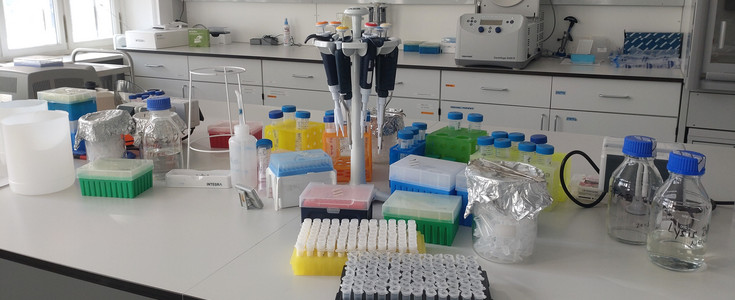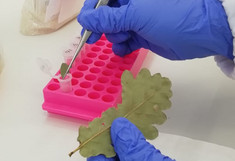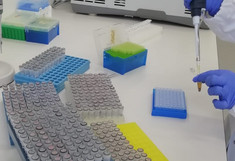
Using high-throughput genotyping, population genetic structures are captured and analyzed with the aim of understanding specialization processes, ecological differentiation, gene flow, and possible translocation. To achieve this, the research group has established the SSR-GBAS method (Simple Sequence Repeats - Genotyping by Amplicon Sequencing) and introduced it for scientific investigations in various systems. The method consists of protocols for marker development, amplification and indexing of a variety of samples, and bioinformatic processing of sequences to determine alleles. SSR-GBAS is based on standardized amplification sequencing using Illumina technology paired with a bioinformatics pipeline. The necessary infrastructure is provided by the institutes own molecular biology laboratory. The SSR-GBAS system has already been applied to a variety of taxa, including the extensive research initiative on the genotyping of Nile Tilapia. Currently, the system is being optimized for the genotyping of forest resources and standardized genetic monitoring.


